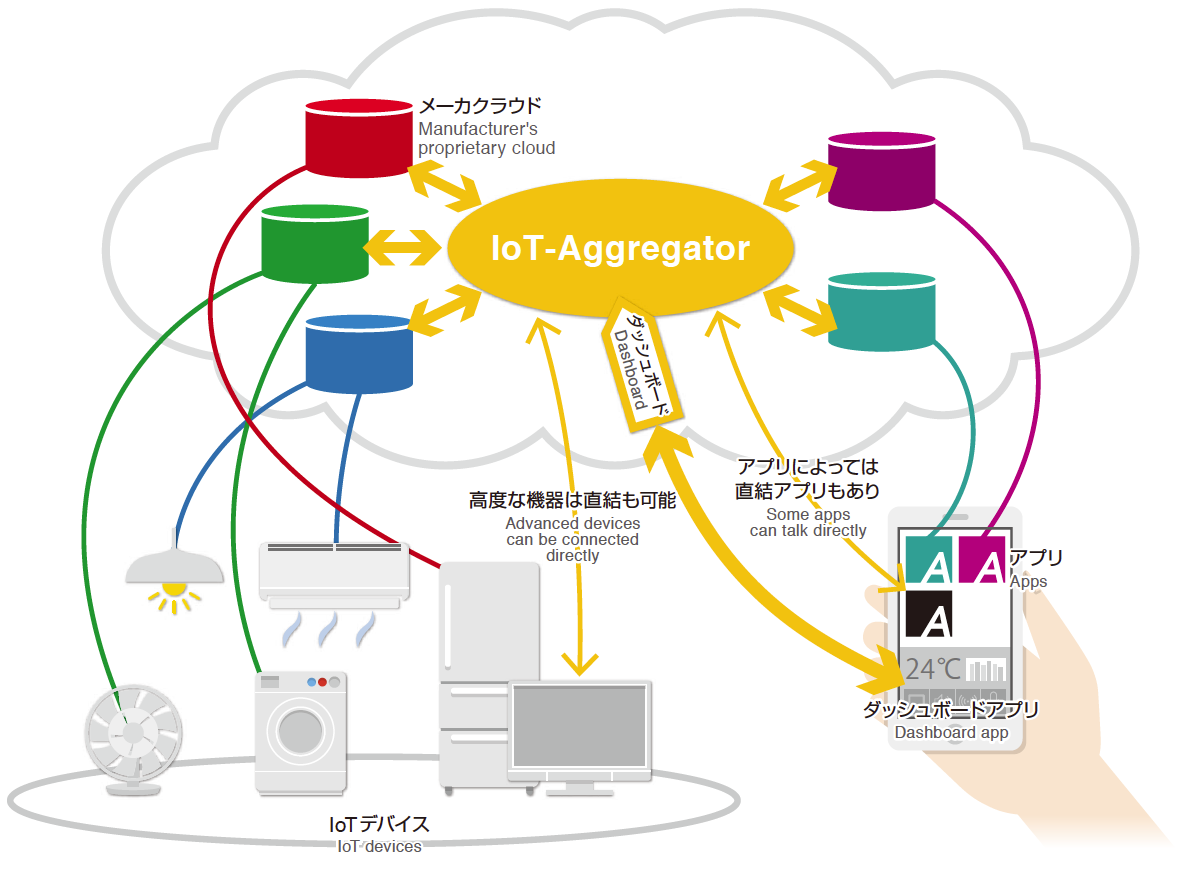“Aggregate Computing” proposed by TRON Project is the concept that various devices, services and systems are connected to a network to achieve optimal performance, in a collaborative manner.
Let us take an example of the optimum control of air conditioning in our living environment. Aggregate computing uses not only air conditioners, but also other objects such as windows, air vents, gas stoves, temperature sensors, humidity sensors, and any other devices that may be related to the control of the air in our living space to achieve the desired optimum control of the environment beyond the confines of the original manufacturers of individual devices.
While we aim to achieve such computing environment, we also have to pay due attention to the governance of the usage of functions. Users should have the final say about who can control what and when instead of the vendors of the devices or service providers. In addition, flexible access control is required so that the governance policies can be dynamically adapted according to the current context.
However, the embedding of complex and comprehensive access control in each node may end up negating the general efforts to achieve the miniaturization and energy-efficiency of such devices. Yet, we can still achieve the miniaturization, low-cost, and energy-saving by moving the complex advanced functions such as access control, which is auxiliary to the original inherent function of the device, to the cloud.
Thus “Aggregate Computing” tries to offer a holistically optimized IoT service by mixing various devices and services as a whole. Currently, YRP UNL is working on research and development for the platforms to realize Aggregate Computing.

